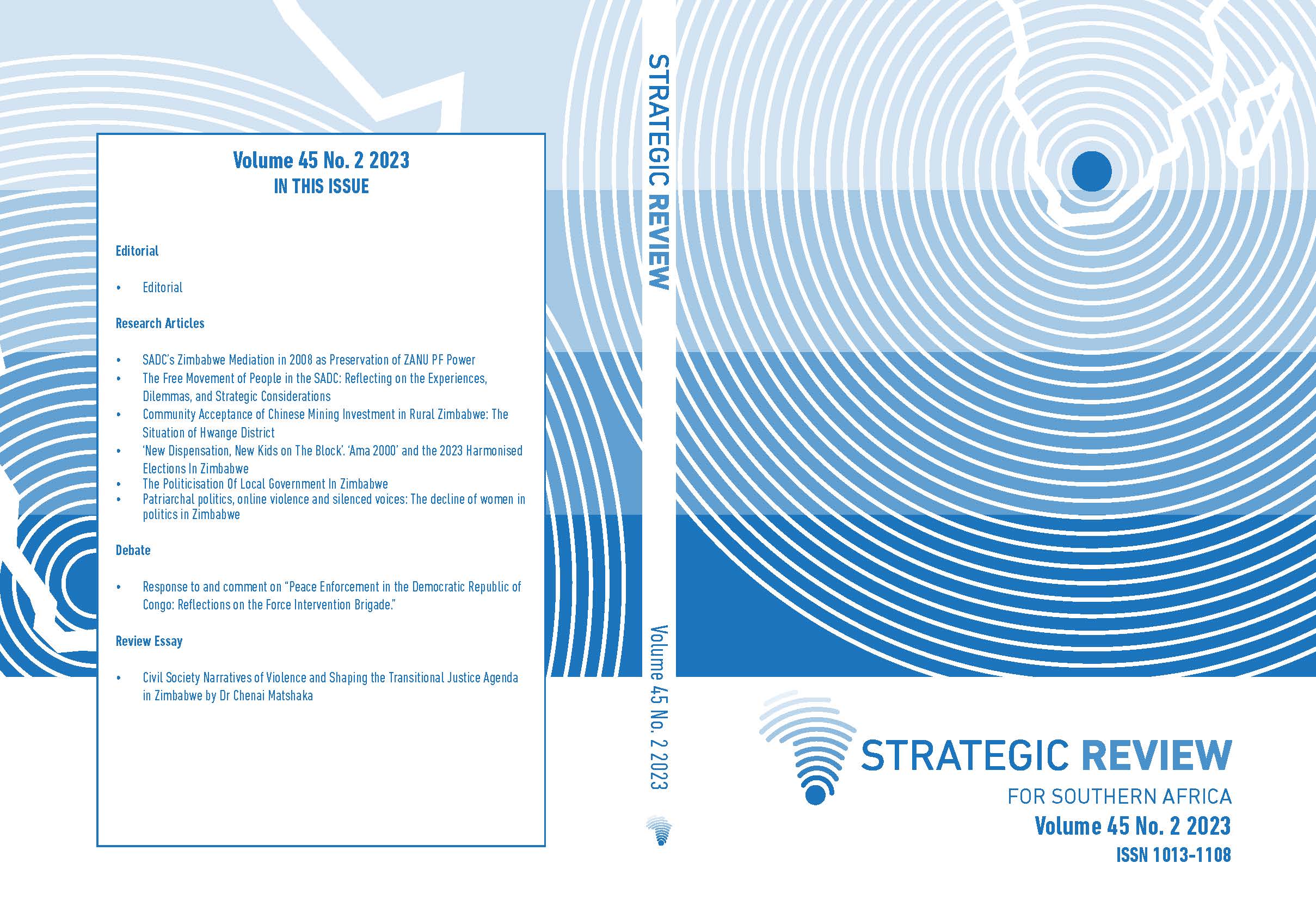SADC’s Zimbabwe Mediation in 2008 as Preservation of ZANU PF Power
DOI:
https://doi.org/10.35293/srsa.v45i2.4002Keywords:
SADC mediation; ZANU PF; MDC; Authoritarianism; GNU, regime preservationAbstract
The historic defeat of the Zimbabwe African National Union Patriotic Front (ZANU PF) in the March 2008 harmonised elections was followed by the unleashing of a violent campaign against the opposition in the run up to the June 27 2008 presidential run-off. This triggered the mediation of the Southern African Development Community (SADC). Although the mediation culminated into a Government of National Unity (GNU) comprising ZANU PF and the two Movement for Democratic Change (MDC) formations between 2009 and 2013, this paper argues SADC was largely complicit in the advancement of ZANU PF authoritarian consolidation. ZANU PF deployment of foreign policy within SADC was mainly designed to secure the region's solidarity whilst advancing domestic interests aimed at cementing political survival. The region became a crucial focus of attention by the government, but how this was used to consolidate ZANU PF's hold on power is yet to be unpacked in full.


